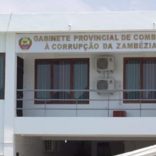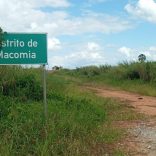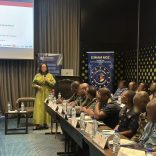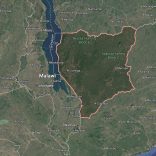Mozambique: Anti-corruption office to investigate suspected embezzlement of funds in Quelimane - ...
Hidden debts: IGEPE chairperson kept in the dark about Ematum – AIM report

Photo: O País
Although the Mozambican government’s Institute for the Management of State Holdings (IGEPE) was the majority shareholder in the fraudulent company Ematum (Mozambique Tuna Company), in practice IGEPE had no say in how Ematum was run
IGEPE held 34 per cent of the shares in Ematum, with the rest divided equally between the state fishing company Emopesca, and GIPS, a company owned by the security service (SISE). Since neither IGEPE nor Emopesca played any role in Ematum. SISE could do what it liked with the company.
Apolinario Panguene, who was chairperson of IGEPE from August 2011 to December 2015, told the Maputo City Court on Thursday, the 43rd day of the trial of 19 people in connection with Mozambique’s “hidden debts,” that the then Finance Minister. Manuel Chang, had told him in 2013 that the Mozambican state had decided to set up a company that, in addition to tuna fishing would have a defence and security component.
Panguene was presented with a viability study, produced by a Swiss company (whose name he could not remember), which claimed that the country could make great gains from tuna fishing. At the time Mozambique was not making full use of its Indian Ocean tuna quotas, which it was selling off to foreign companies.
On this basis, the IGEPE board of directors decided that the Ematum project was viable. But the board could take no other decision, because Chang’s Ministry had already decided that IGEPE would be the majority shareholder.
“It was a State decision, so IGEPE did not have to decide”, said Panguene. The decision cost nothing – although IGEPE was supposedly committed to subscribing to the Ematum equity capital, Panguene revealed that in in fact it paid nothing for the shares. He did not know whether the Ministry of Finance had stepped in to pay the amount owing.
IGEPE also had no say in the financial and supply contracts which Ematum signed – the first with the bank Credit Suisse (for a total of 850 million US dollars), and the second with the Abu Dhabi based group Privinvest.
He said Chang had told him such large sums were involved that the contract should be handled directly by the Finance Ministry.
Panguene had no contact with the assets that Ematum bought from Privinvest, although he recalled that on one occasion, the Ematum chairperson, Antonio do Rosario, had invited him to visit the fishing boats, an invitation he was unable to accept.
He had no idea what assets were being acquired. “It wasn’t our project”, he said. “The Finance Ministry took care of those details”.
Asked whether he was ever told that Ematum was linked to two other fraudulent companies, Proindicus and MAM (Mozambique Asset Management), Panguene simply replied “No”.
He told the court he knew Ematum was running at a loss, and that was clear from accounts published in 2015, but he could shed little light on them. “All I know is that the results were negative”, said Panguene, “but I don’t know the details of the company’s financial health”.
He never understood the defence and security component of Ematum, and it was not in the viability study. But on the one occasion he visited the Ematum headquarters, the Ematum chief executive officer, Cristina Matavele, refused to allow him into the basement, because security equipment was supposedly kept there.
Another witness, Ivone Lichucha, the Ematum director of fishing operations between 2013 and 2015, was even less informative.
She said that during her time as an executive director, the Ematum fleet had put out to sea to fish for tuna on just one occasion, in 2014. She had watched one boat being unloaded in the Maputo fishing port but did not know if any others had been involved. She claimed that some of this catch had been exported to Spain, Uruguay and China, but did not know how much.
Clearly this tuna must have earned the company some revenue, but Lichucha did not know how much.
Asked about the high costs that threatened the viability of Ematum, she could say almost nothing about them. She knew that the bait to catch tuna (squid) was imported, but she did not know what countries it came from.
Other costs mentioned earlier in the trial included insurance and moorage fees – but Lichucha had nothing to say about these.
So here was a director of operations who knew next to nothing about her company’s operations, and repeatedly answered questions with the phrases “I didn’t follow that”, or “I have no information”.













Leave a Reply
Be the First to Comment!
You must be logged in to post a comment.
You must be logged in to post a comment.